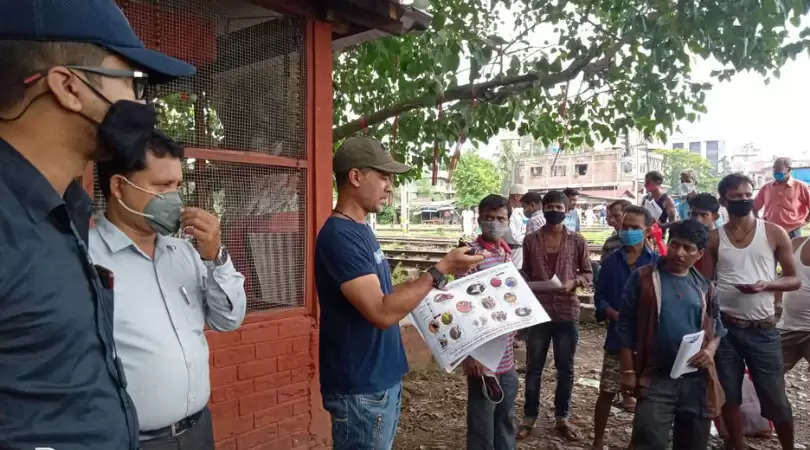Assam: WCCB, Aaranyak launch ‘Op Wet Market’ in Guwahati to curb wildlife crimes
Key markets in the city such as Ganeshguri, Beltola, Bamunimaidan and Paltan Bazar, etc., were targeted.

From Our Correspondent
GUWAHATI:
The Wildlife Crime Control Bureau (WCCB), supported by biodiversity conservation NGO, Aaranyak, carried out an operation against “wet markets” or “unregulated illegal markets dealing in wildlife species” across key areas of Guwahati on Friday with an aim to sensitize and make masses aware about the illegalities of such markets.
Key markets in the city such as Ganeshguri, Beltola, Bamunimaidan and Paltan Bazar, etc., were targeted.
Carrying out such an operation at the Bamunimaidan market here, WCCB assistant director, Guwahati, Jawaharlal Baro underlined the need to ensure that no wildlife species were sold or bought in the wet markets.
He also talked about the objectives of WCCB and its mode of operation in different parts of the country to curb wildlife crime.
Unregulated illegal markets still exist in many parts of Assam and all other states. Many of the “regular markets” which the common people depend on for buying daily needs may also sometimes provide opportunities for traders to illegally sell wildlife species.
Jimmy Borah, senior manager from the legal and advocacy division of Aaranyak, along with Nabajit Barman, field officer, WCCB, jointly spoke about various kinds of wildlife species and their products which are commonly found in the markets of Assam.
The market committees and the sellers here were informed about the penalties for dealing illegally in any wildlife species. Importance of transmission of zoonotic diseases from wildlife to humans was also highlighted during the awareness campaign.
The audience were told about the species like turtles, pangolins, tokay geckos, monitor lizards, wild fish, owls, hill mynas, parakeets and orchids which were commonly encountered in wet markets.
Leaflets and posters on these species were widely distributed in the markets to raise awareness.
Illegal international trade in wildlife and despicable conditions in which wildlife are kept for sale and slaughtered in the wet markets of India may contribute towards the outbreak and spread of zoonotic diseases such as COVID-19 which has disrupted human activities for more than a year now.
ALSO READ: Assam special DGP chairs meet with Rhino Protection Task Force in Kaziranga NP
TNT-The Northeast Today is now on WhatsApp: CLICK HERE to receive more updates on your phone.

















